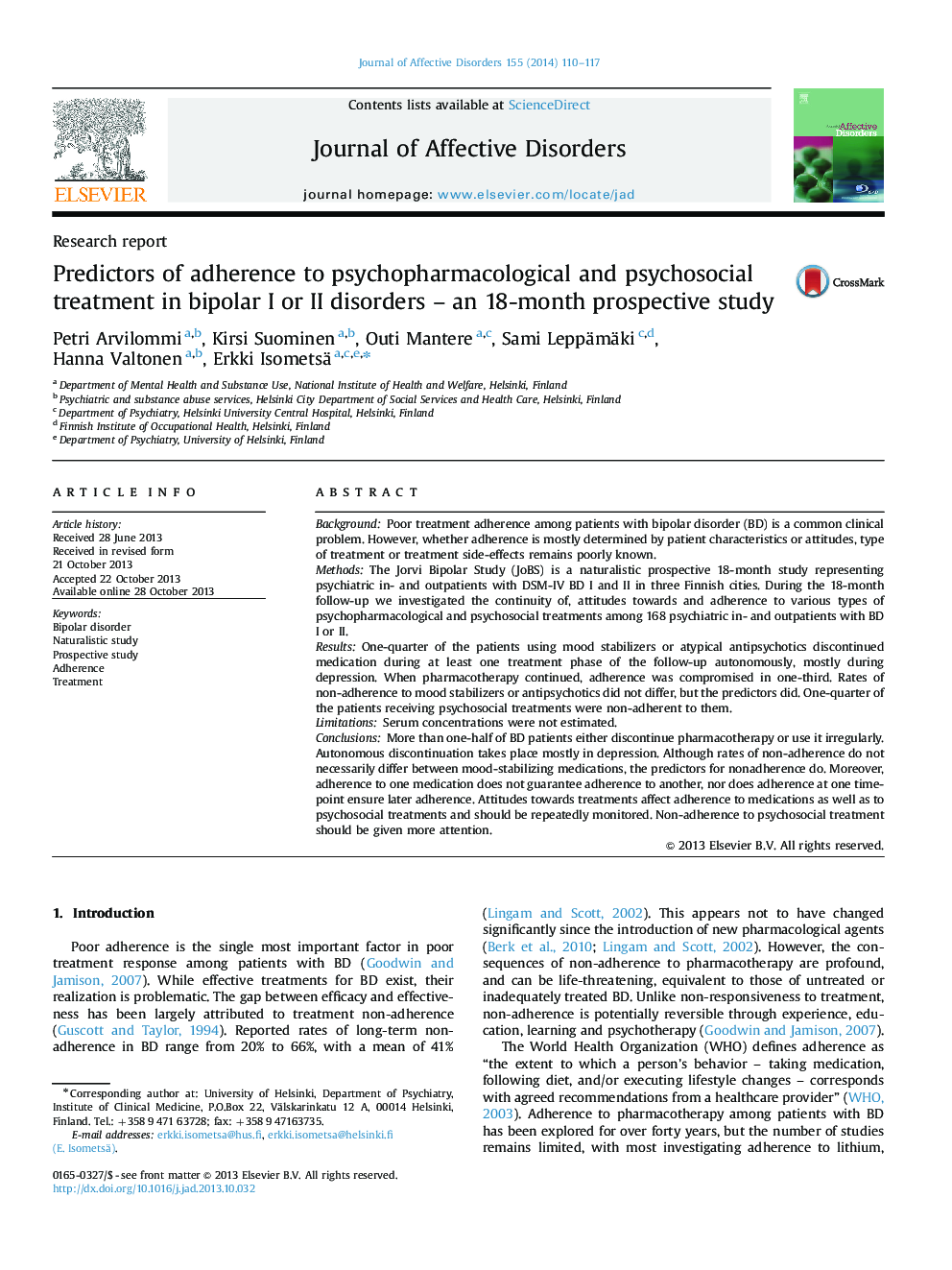| کد مقاله | کد نشریه | سال انتشار | مقاله انگلیسی | نسخه تمام متن |
|---|---|---|---|---|
| 6233304 | 1608170 | 2014 | 8 صفحه PDF | دانلود رایگان |

BackgroundPoor treatment adherence among patients with bipolar disorder (BD) is a common clinical problem. However, whether adherence is mostly determined by patient characteristics or attitudes, type of treatment or treatment side-effects remains poorly known.MethodsThe Jorvi Bipolar Study (JoBS) is a naturalistic prospective 18-month study representing psychiatric in- and outpatients with DSM-IV BD I and II in three Finnish cities. During the 18-month follow-up we investigated the continuity of, attitudes towards and adherence to various types of psychopharmacological and psychosocial treatments among 168 psychiatric in- and outpatients with BD I or II.ResultsOne-quarter of the patients using mood stabilizers or atypical antipsychotics discontinued medication during at least one treatment phase of the follow-up autonomously, mostly during depression. When pharmacotherapy continued, adherence was compromised in one-third. Rates of non-adherence to mood stabilizers or antipsychotics did not differ, but the predictors did. One-quarter of the patients receiving psychosocial treatments were non-adherent to them.LimitationsSerum concentrations were not estimated.ConclusionsMore than one-half of BD patients either discontinue pharmacotherapy or use it irregularly. Autonomous discontinuation takes place mostly in depression. Although rates of non-adherence do not necessarily differ between mood-stabilizing medications, the predictors for nonadherence do. Moreover, adherence to one medication does not guarantee adherence to another, nor does adherence at one time-point ensure later adherence. Attitudes towards treatments affect adherence to medications as well as to psychosocial treatments and should be repeatedly monitored. Non-adherence to psychosocial treatment should be given more attention.
Journal: Journal of Affective Disorders - Volume 155, February 2014, Pages 110-117